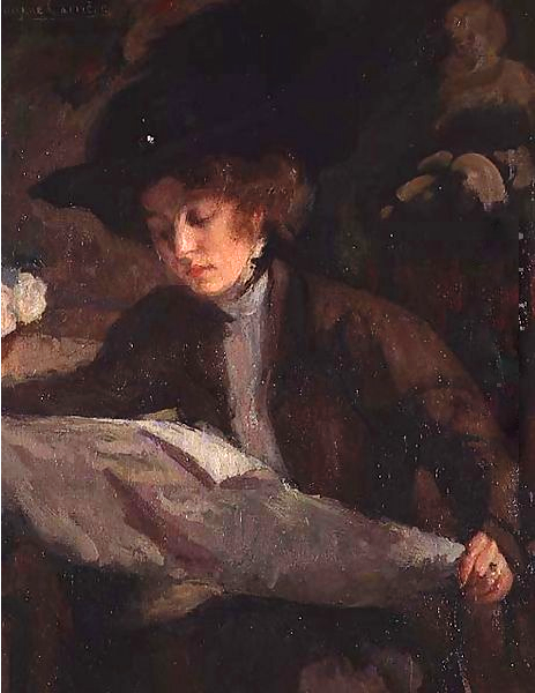Tuesday
Over the past two weeks, life in our household has become very complicated. I will share in future posts the challenges of caring for my 96-year-old mother, who has become bedridden after three strokes. Today I report on how I have become heir to her poetry column in the Sewanee Mountain Messenger.
I owe equal parts to my father and my mother when it comes to my character and interests. My father was a literature professor who loved reading to us as children. I aspired to be like him and became a professor in turn. My mother, meanwhile, started the weekly town newsletter (it was the Sewanee Siren before it was the Messenger), which helped shape my desire to reach non-academic audiences. Working together with my father, she would begin every issue with a poem or timely quotation.
She and my father continued with practice in The Messenger, authoring a column they called “From Bard to Verse.” Usually they tried to find a poem that had some tie-in with Sewanee events. The beginning of the school year got a poem, as did the various holidays, election day, visiting speakers, weather events, seasonal changes, and of course Commencement. This very blog owes something to their column.
Yesterday, however, I had to inform the editor that, while my mother had chosen the topic for this week’s poem—the Sewanee Summer Music Festival—she is no longer able to provide poems for her column. I offered to continue in her place, and it appears that the editor is agreeable.
For the record, I excerpted from John Dryden “Song for St. Celia’s Day, 1687,” which rhetorically asks, “What passion cannot music raise and quell!”
The poem is not entirely appropriate since the Summer Festival focuses on symphonic instruments whereas Dryden is most enamored of the organ. The poem concludes,
But oh! what art can teach
What human voice can reach
The sacred organ’s praise?
Notes inspiring holy love,
Notes that wing their Heav’nly ways
To mend the choirs above.
Orpheus could lead the savage race;
And trees unrooted left their place;
Sequacious of the lyre:
But bright Cecilia rais’d the wonder high’r;
When to her organ, vocal breath was giv’n,
An angel heard, and straight appear’d
Mistaking earth for Heav’n.
Still, Dryden also features trumpets, drums, flutes, and violins in his poem so I figured it would work.
Many people have told me that, upon obtaining their copy of the weekly Messenger, the first thing they do is turn to last page, where my mother’s column appears, and read the poem. I will most honor the tradition she established if the column continues to draw such attention.


